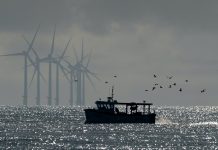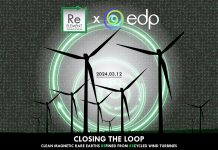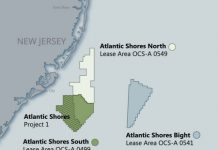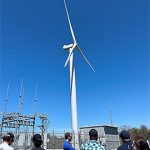According to a recent announcement by the nonprofit organization Equitable Origin (EO), conflicts over land rights and consultation with local communities present mounting risks to the global expansion of renewable energy. The announcement accompanied the organization’s release of a case study on wind development in the Mexican state of Oaxaca, which is fraught with resistance from local and indigenous communities. The case study, “Defining and Addressing Community Resistance to Wind Development in Oaxaca,” is available for download from the Equitable Origin website.
Community protest and a delayed wind energy project in Oaxaca represent a broader trend, according to EO’s CEO Soledad Mills.
 “Because most utility-scale renewable energy projects require vast areas of land, they carry a high likelihood of causing conflicts over land rights and land use, in addition to other local-level social and environmental impacts,” Mills said. “As the important global push toward renewable energy ramps up and development expands to new parts of the globe, the potential for conflicts that delay projects and increase costs will grow.”
“Because most utility-scale renewable energy projects require vast areas of land, they carry a high likelihood of causing conflicts over land rights and land use, in addition to other local-level social and environmental impacts,” Mills said. “As the important global push toward renewable energy ramps up and development expands to new parts of the globe, the potential for conflicts that delay projects and increase costs will grow.”
Mills also said that developers of and investors in renewables projects have a unique opportunity to avoid the pitfalls of the past 100 years of energy development.
“The risks to renewables projects presented by land rights conflicts and community opposition are manageable, but if ignored, they could bring about a slowdown in renewable development at a time when the world needs it most,” Mills said. “Credible, independent standards for observing land rights and productively consulting with local communities can streamline projects and facilitate the rapid development that’s required to achieve climate goals and meet growing demand for clean energy.”
Mills added that EO’s case study on conflicts in Oaxaca offers insights into how to address them in other parts of the world.
“Our recommendations in the study for more inclusive, complete, and culturally sensitive engagement efforts can lead to better outcomes for communities and more efficient project implementation,” Mills said. “EO’s voluntary, community-oriented EO100 standard for responsible energy development, associated services, and experience in engagement with local and indigenous communities can help identify and implement best social practices with project stakeholders.”
According to Mills, the global renewable energy boom that received a major boost from the COP21 agreement offers great hope for mitigating climate change as well as an opportunity to raise the bar for social practices.
“At this exciting historical moment when there has never been more focus on combating climate change, we can facilitate efficient renewable energy development while ensuring that the benefits of a safer, cleaner energy future are shared with local and indigenous communities,” Mills said. “Now is the time for communities, companies, regulators, investors, and NGOs [non-governmental organizations] to come together in support of responsible renewable energy development, in Mexico and around the world.”
— Source: Equitable Origin
For more information,
go to www.equitableorigin.org.



































